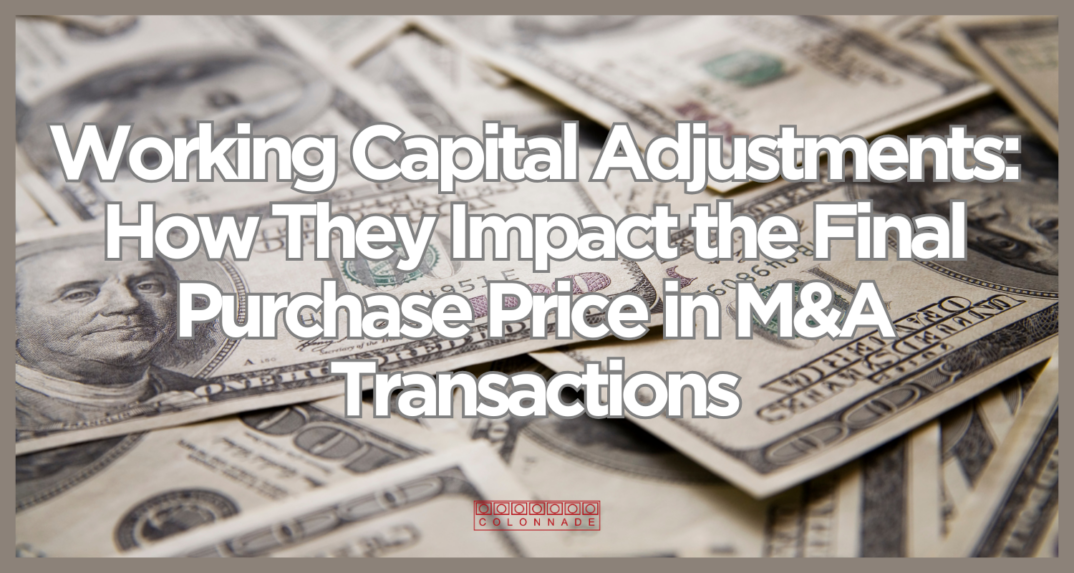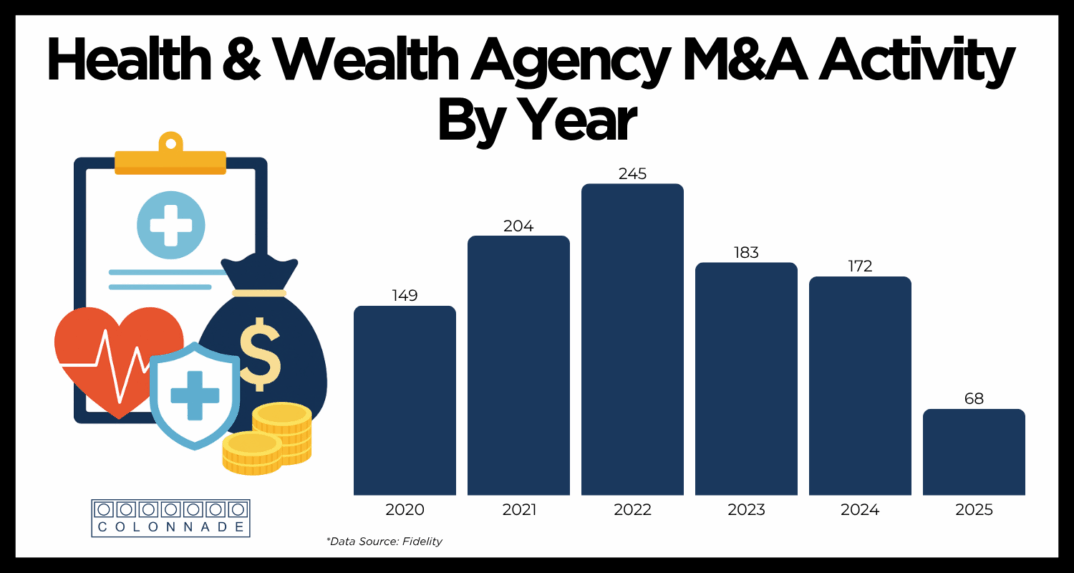Working Capital Adjustments: How They Impact the Final Purchase Price in M&A Transactions

A typical purchase agreement includes language like this:
Section 1.1 Purchase Price
- The aggregate consideration for the purchase and sale of the stock will be equal to an amount in cash calculated as follows:
- X Million Dollars ($xx,000,000);
- plus the Closing Cash Amount;
- plus the amount by which the Closing Working Capital exceeds the Target Working Capital, or minus the amount by which the Target Working Capital exceeds the Closing Working Capital;
- minus the Closing Indebtedness;
- minus the Closing Debt-Like Items;
- minus the Transaction Expenses; and
- plus the Tax Adjustment Amount.
- For the avoidance of doubt, no liability will be treated as both a Transaction Expense and a Current Liability.
This formula reflects a common M&A mechanism: the working capital purchase price adjustment (PPA). While it may look like a technical accounting footnote, this adjustment can swing the final price of a deal by millions.
What Is a Working Capital Adjustment?
A working capital adjustment ensures that the buyer receives a “normal” level of working capital needed to operate the business on Day 1 post-close. It’s a safeguard against either party being unfairly advantaged by shifts in short-term assets and liabilities between signing and closing.
The adjustment is simple in concept:
Actual Closing Working Capital – Target Working Capital = Adjustment Amount
- If the closing working capital exceeds the target, the seller receives more.
- If it falls short, the buyer receives a reduction in the purchase price.
This helps prevent scenarios where a seller might delay payments or aggressively collect receivables to inflate cash before closing—leaving the buyer with a working capital gap.
Defining the Target Working Capital
The Target Working Capital is usually based on a trailing average—often the prior 12 months—and negotiated by both sides. The goal is to set a benchmark that represents a “normal” operating level for the business.
A key negotiation point is what goes into working capital. Typical inclusions:
Current Assets:
- Net accounts receivable
- Inventory
- Prepaid expenses
- Short-term deposits
Current Liabilities:
- Accounts payable
- Accrued expenses
- Short-term payroll and tax liabilities
Typical exclusions include cash, debt, unusual or non-operating items, and intercompany balances.
Post-Close True-Ups and Escrows
Because the final numbers often aren’t available at closing, most agreements include a true-up period—usually 60 to 90 days post-close. During this time, the buyer recalculates final working capital, and adjustments are made accordingly.
Many deals include a working capital escrow—often about 1% of the transaction value—held temporarily to cover any post-close shortfalls. If working capital is above target, the seller may receive a true-up payment from the escrow. If it’s below, the buyer is protected.
Market Trends: PPAs Are Now the Norm
According to SRS Acquiom’s 2025 Working Capital Purchase Price Adjustment Study:
- 90%+ of private-target M&A transactions now include a PPA, up from just 50% a decade ago.
- 75% of these deals include a separate escrow.
- In 70% of cases, sellers accepted the buyer’s PPA calculation.
- Median resolution time: two months.
Why It Matters
For buyers, the working capital adjustment ensures they’re not overpaying for a business that’s been stripped of operational liquidity. For sellers, it protects the deal value when operations remain healthy up to the close.
At Colonnade Advisors, we help clients navigate every clause of the purchase agreement to ensure fair, well-structured deals. Understanding the mechanics—and implications—of working capital adjustments is essential for both sides of the table. Let’s talk.


